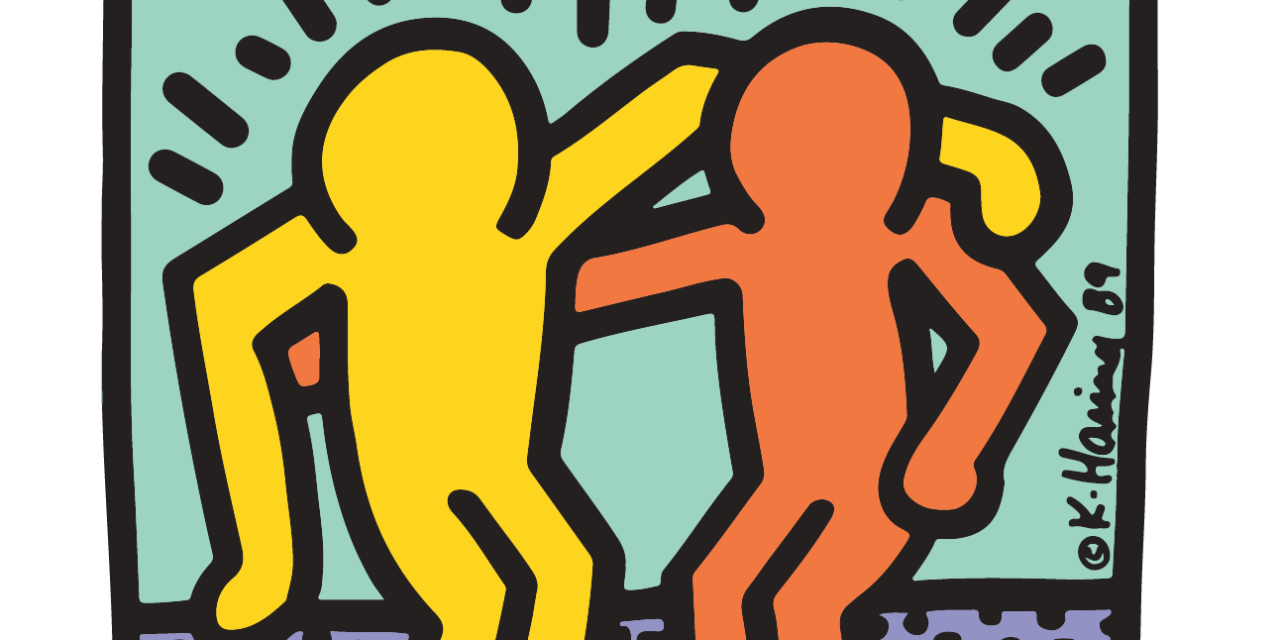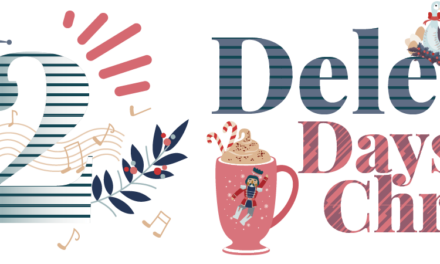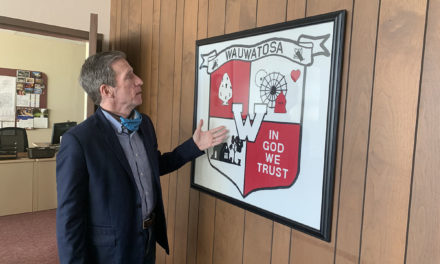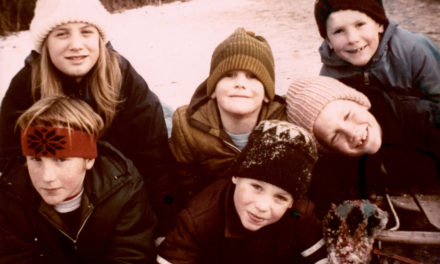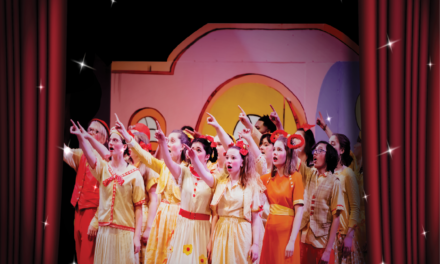Tosa is a key player in Best Buddies, a global effort to help those with intellectual and developmental disabilities (IDD).
BY RICK ROMANO
The concept of having a best friend is at the heart of Best Buddies, a statewide nonprofit based in Wauwatosa. The Best Buddies program is part of an international movement stretching back to 1989, with plenty of local connections that are highly valued by both sides of these relationships.
Commitment
“Our mission is independence, but based on friendship and fun,” says Wisconsin state Director Laura Brackett, whose Best Buddies staff is headquartered in the Fairview Building at North Avenue and 104th Street. The mission, she says, is based on what the organization calls its four pillars: friendship, integrated employment, leadership development, and inclusive living. The Wisconsin chapter is fully engaged right now in fulfilling the first three pillars with an eye on developing future living options.
Brackett, a 20-year veteran of nonprofit leadership, says she was attracted to Best Buddies ten years ago.
“I did not have a personal connection at the time, but the mission and the culture are fun,” she says. “You see it in action. What I have learned is that people (with IDD) want to be accepted for their abilities. You see this especially in our jobs programs. These folks want to earn, pay taxes, and generally contribute. They want to work on-site or at home, the same as everyone else.”
Along the way, the organization emphasizes presentation skills, including writing and presenting speeches to an audience. There is even a media training program within the leadership-readiness activities.
Personal contact is key, so Best Buddies relies on special events such as a Friendship Walk, a Champion of the Year dinner, and a Brewers Tailgate. Recent pandemic-generated Zoom meetings included cooking demonstrations, Irish Dance presentations, and Share Your Pet Night.
An important component is making Best Buddies matches. Friendship and leadership programs drive that activity, says Christine Schultz, Best Buddies’ Wisconsin lead program manager. The matches are meant to develop meaningful connections with activities carried out on regular intervals such as monthly in-person and weekly by internet or phone. Buddies are matched by gender as well as similar age, interests, and locations. An adult citizens program is one method of connection. Another one, Schultz a says, comes in school.
“We have 75 school chapters throughout the state,” she says, “and we’d love to expand into more.” Tosa East and West both currently have chapters.
Participants’ views
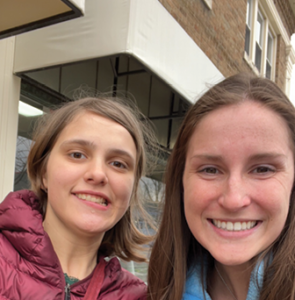 Amelia Jennings, 20, of Wauwatosa was diagnosed with cerebral palsy at six months old.
Amelia Jennings, 20, of Wauwatosa was diagnosed with cerebral palsy at six months old.
She did not walk on her own until she was three and went through various physical and speech therapies throughout her childhood. Her mother, Staci, credits a supportive school system and Best Buddies for helping her daughter gain her independence.
Amelia says Best Buddies was especially helpful though her four years in high school, where the chapter matches another student and often a group of other supportive students. Now, two years out of high school and thanks to a match, Amelia has a connection with Madison Dettmann and a regular job at the Bel Aire Cantina on North Avenue, where she helps prepare take-out orders and a variety of other duties. She also takes accounting classes at WCTC with an eye to a possible future business of her own.
“I started in Best Buddies as a freshman in high school,” Amelia says. “It helped me make a friend and then you don’t get just one friend, but you also get their friends.”
She has made a similar connection with Madison. They go out and do things together or enjoy just hanging out together at home. Madison, a college graduate with a career in finance, said she always wanted to become a Buddy since she participated with IDD students while attending Arrowhead High school.
“Amelia gets along with everyone,” Madison says. “The idea is for the relationship not to feel forced. This is a great match because we really like to do things together.”
“I have learned a lot,” she says, “because you see how someone like Amelia approaches things. They think creatively and I also have an appreciation now that it might take a little longer for her to do certain things, things that we often take for granted.”
Another local Best Buddies relationship has been forged between Claire Topp and Anya Ranft, both of whom graduated from Tosa East High school this year. Claire was diagnosed with Jacobson Syndrome, a deletion of genes from chromosomes 11, thereby causing cognitive issues. Anya graduated as one of Tosa East’s valedictorians.

Their differences did not stop a friendship that Anya describes as starting in kindergarten.
“Claire is a social butterfly,” Anya says. “The school system was great. She was showered with support. We love getting together when we can. This has also been learning experience for me. Best Buddies has been great.”
The relationship will be tested. Anya left in late August overseas to attend college. She says that won’t hinder her friendship with Claire.
“I told Claire she can call me anytime,” Anya says. “I’ll make sure my roommate signs off on that. And I will be home for Christmas.”
Claire has spent the summer working at Hoyt Pool, and she can rely on a supportive family that has been involved in Best Buddies for years. In fact, her dad, Dan Topp, serves as chair of the Best Buddies Advisory Committee. The group, he says, is comprised of several professionals from various perspectives who advise leadership, help raise awareness, as well as funds, and assist in special events.
Topp calls his involvement a “family affair” with his wife, Linda, having served in the same capacity earlier and two older daughters who support the cause.
“You imagine your kids going through all the typical life experiences, like hanging out with friends, going to a high school dance,” Topp says. With Best Buddies and the support of Anya and her twin sister (also named Claire), Claire has been able to experience typical teen years as much as possible. “The organization here is part of a pretty high-powered international organization; the staff works super hard” states Topp. “It’s an easy mission to get behind.”
Employer support
Those who offer job experience say they understand the value of the experience.
“On any given day, Claire could be scanning people into the pool in admissions, working at admission, greeting people, working as a deck attendant, and cleaning the area,” says Brian Wingert, Hoyt Park operations manager. “She’s part of our crew. It’s a good way for her to build skills as a steppingstone to any job.”
At Bel Aire Cantina, General Manager Doug Beattie says Amelia’s duties packaging to-go orders for customers and gathering and prepping supplies sharpens teamwork and communication skills. “It’s definitely work we need and should help Amelia career-wise,” Beattie says.
Best Buddies Fast Facts
- Anthony Kennedy, founder, chairman and CEO created Best Buddies in 1989 while attending Georgetown University. He is the son of Eunice Shriver, founder of Special Olympics.
- The international organization is active in all 50 states and 56 countries and territories – reaching across six continents.
- Wisconsin Best Buddies is a multi-faceted organization with a variety of opportunities for involvement. To find out more, go to bestbuddies.org/wisconsin.

